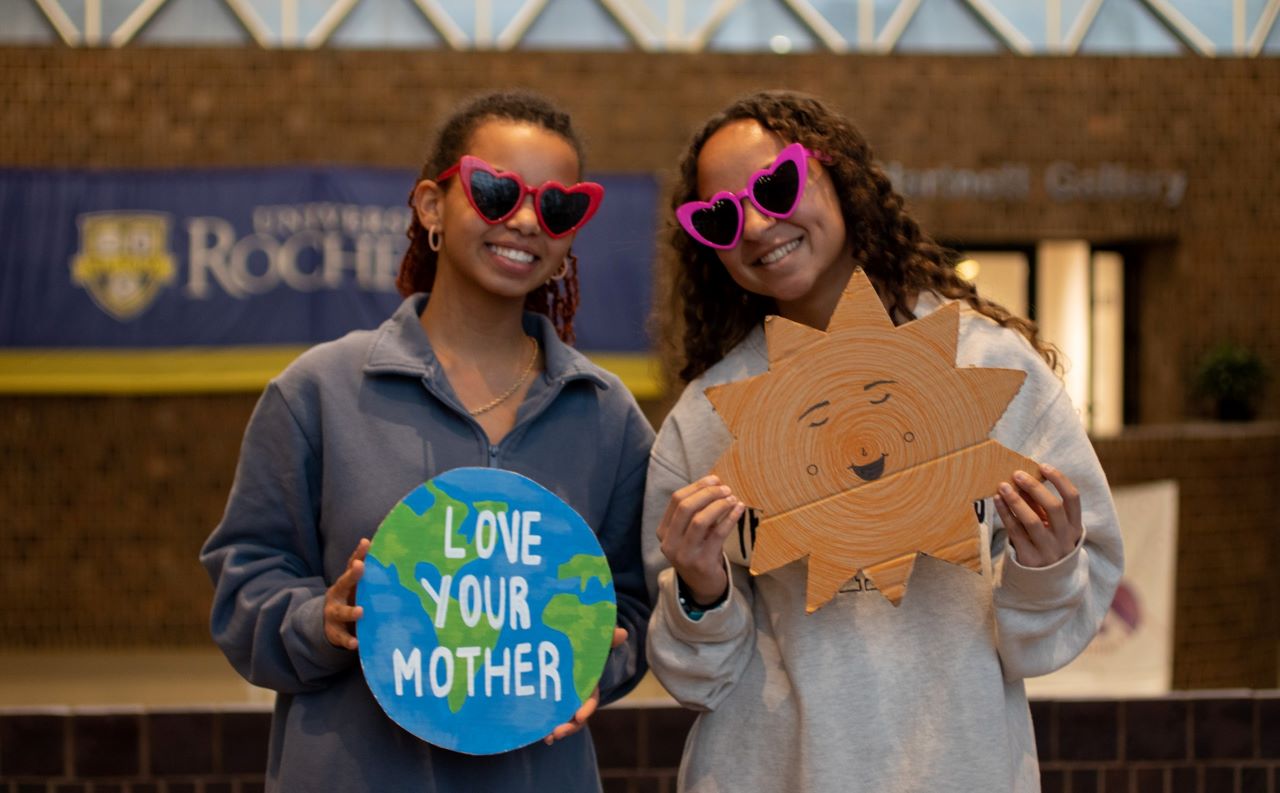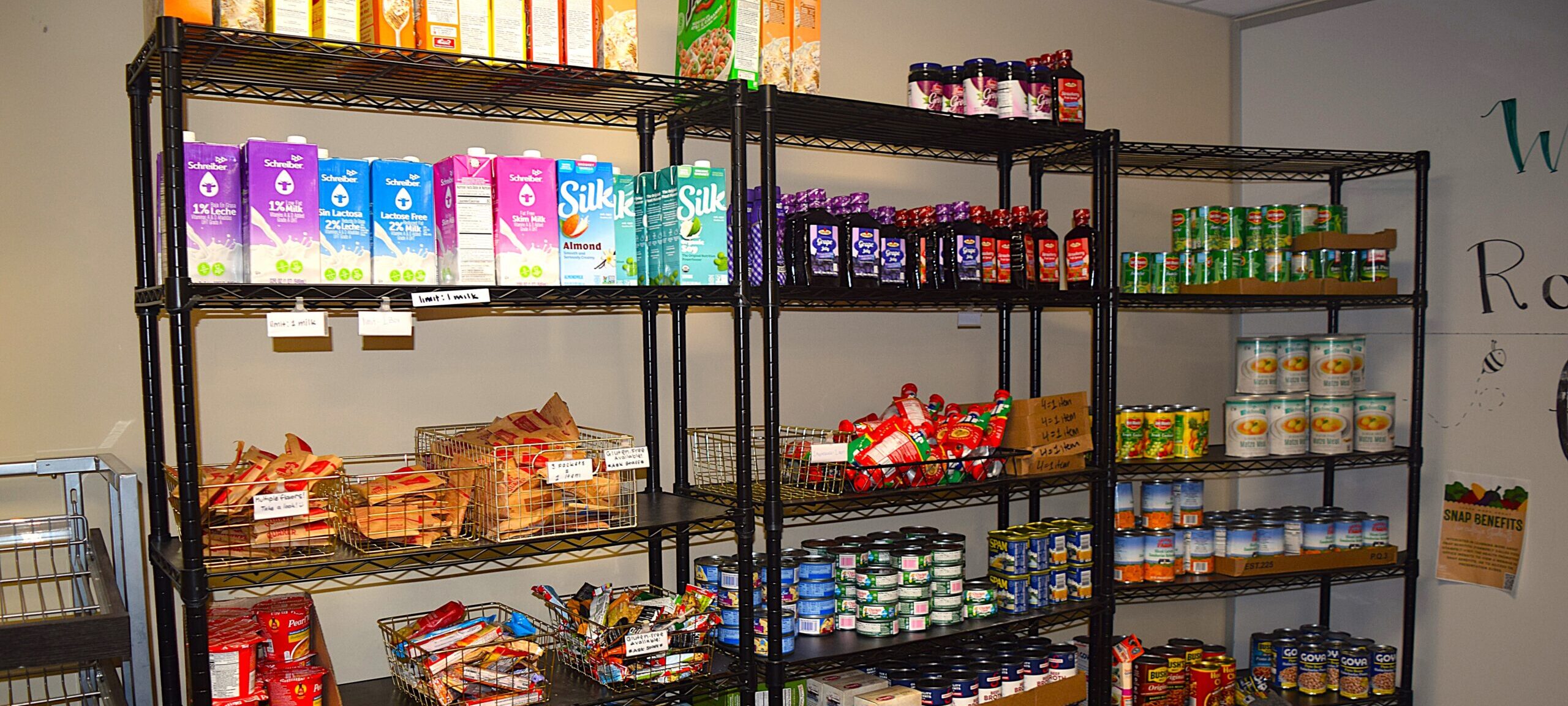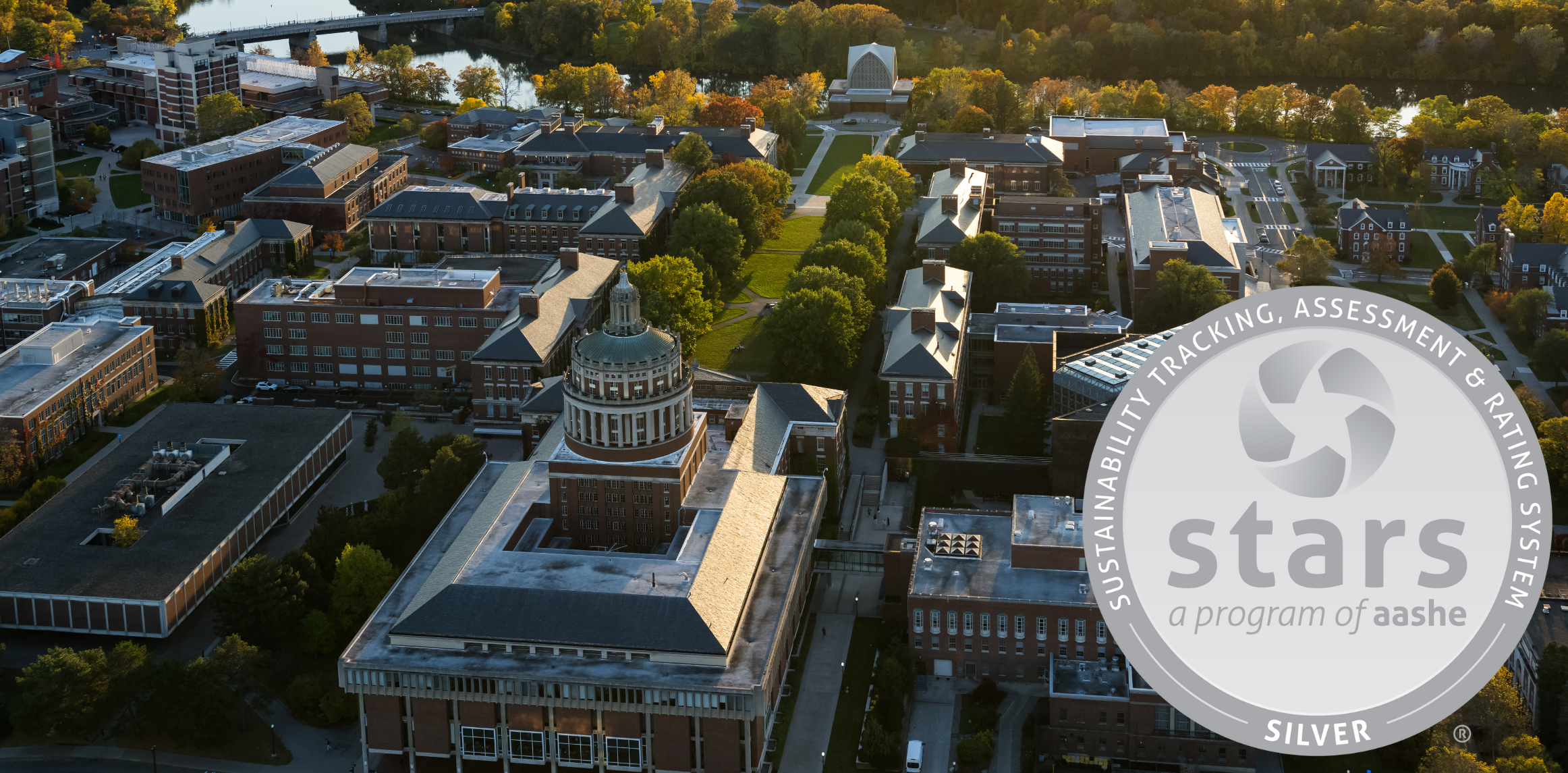The Sustainability Office partners with various groups for waste reduction initiatives to garner student support and enthusiasm on campus. One example is a new Zero Waste Committee that was created as part of the EcoReps program. Additionally, the University participates in the annual Campus Race to Zero Waste competition, partnering with multiple student groups on promotional events to help spread their collective mission of sustainable actions and behaviors on campus. Often such initiatives can help bring to light areas of improvement for future work.
EcoReps Zero-Waste Committee
The EcoReps are a group of first year students passionate about sustainability who educate their peers in their residence halls on issues such as waste reduction and energy conservation while also taking a seminar course on sustainability. This year, six EcoReps served on a zero waste committee and conducted waste audits in their residence halls.
Members of this year’s EcoReps zero waste committee were Aidan Flanders, Ugo Odom, Lauren Bigley, Julia Dubey, Melanie Mathurin, and Paul Hare. They each went around to trash and recycling bins in common areas of their residence halls, recorded their contents, and estimated the percent material by volume. Based on these findings they made some changes, such as rearranging bins and further educating their floors on particular recycling facts and practices. Overall, the zero waste committee was successful in reducing contamination in recycling bins, meaning more materials were actually recycled.
Campus Race to Zero Waste
Campus Race to Zero Waste is a nationwide competition among colleges and universities. This was Waste Minimization Specialist Phil Piedmont’s first year running Campus Race to Zero Waste. In doing so, Piedmont received a combination of actual and estimated weights to report to the competition. Waste Management truck drivers provided waste container volumes every week, which Phil converted to weights for reporting purposes. Piedmont thanks all of the Waste Management drivers for putting in this extra effort, as typically only monthly estimates are received. Special thanks go to Bob Eberle’s team who reported recycling and Dave Alberti who reported the organics and trash numbers.
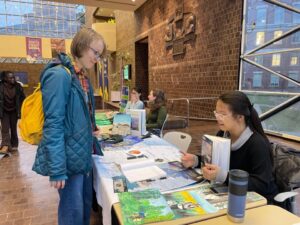
Based on data provided by the vendor, Piedmont discovered areas of improvements to increase recycling and divert future waste streams. For future competitions, Piedmont is exploring the idea hosting a big recycling event, in a similar vein to Shred Fest and E-Cycle Day, to have a bigger impact on waste reduction and get students more directly involved in waste reduction efforts.
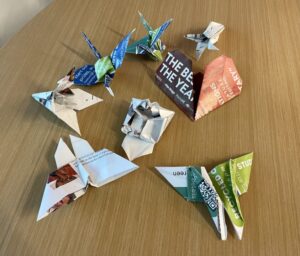 In addition to the waste measurements going on behind the scenes, there were several student-facing Campus Race to Zero Waste events coordinated by Facilities Team Green. Highlights included a large tabling kick-off event with multiple sustainability student organizations, a Valentine’s Day photo booth, zero waste origami workshop, and an Instagram giveaway with Wilson Commons Student Activities. Sustainability Programs Assistant Alyssa Horng created the zero waste origami event where participants used cut-up scrap paper to fold decorative origami. Horng envisioned the event as a relaxing study break and an easy for students to engage with sustainability and it was a fun way to incorporate her origami skills into her job.
In addition to the waste measurements going on behind the scenes, there were several student-facing Campus Race to Zero Waste events coordinated by Facilities Team Green. Highlights included a large tabling kick-off event with multiple sustainability student organizations, a Valentine’s Day photo booth, zero waste origami workshop, and an Instagram giveaway with Wilson Commons Student Activities. Sustainability Programs Assistant Alyssa Horng created the zero waste origami event where participants used cut-up scrap paper to fold decorative origami. Horng envisioned the event as a relaxing study break and an easy for students to engage with sustainability and it was a fun way to incorporate her origami skills into her job.
The University participated in three categories for this year’s Campus Race to Zero Waste: diversion, per capita, and food organics. In total, over 150 colleges and universities participated from the United States and Canada. 105 million single-use plastic items were kept out of landfills and over 23,000 metric tons of carbon dioxide equivalent emissions were kept out of the atmosphere during the competition.
University of Rochester results::
- Top 15 percent: 12 out of 84 in Food Organics
- Top 20 percent: 18 out of 97 in Per Capita Classic
Visit UR Sustainable on Facebook for more photos of the promotional campaign. Review full competition results and learn more about Campus Race to Zero Waste.
Written by Sarah Woodams ‘24(T5) and revised by Amy Kadrie
Photos by Sarah Woodams / University of Rochester

